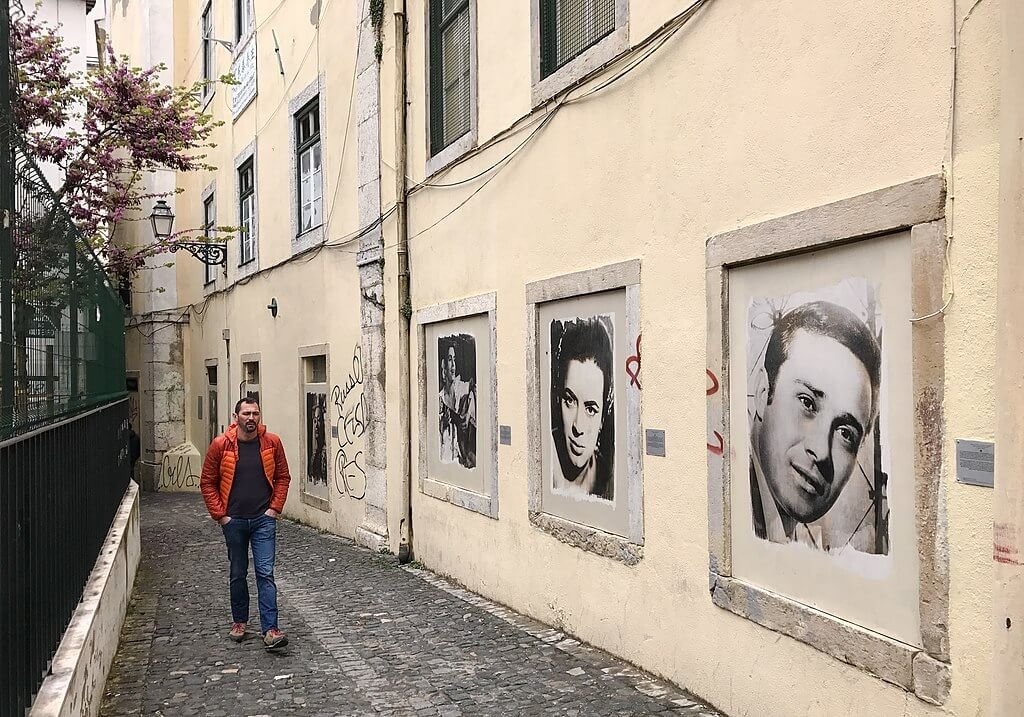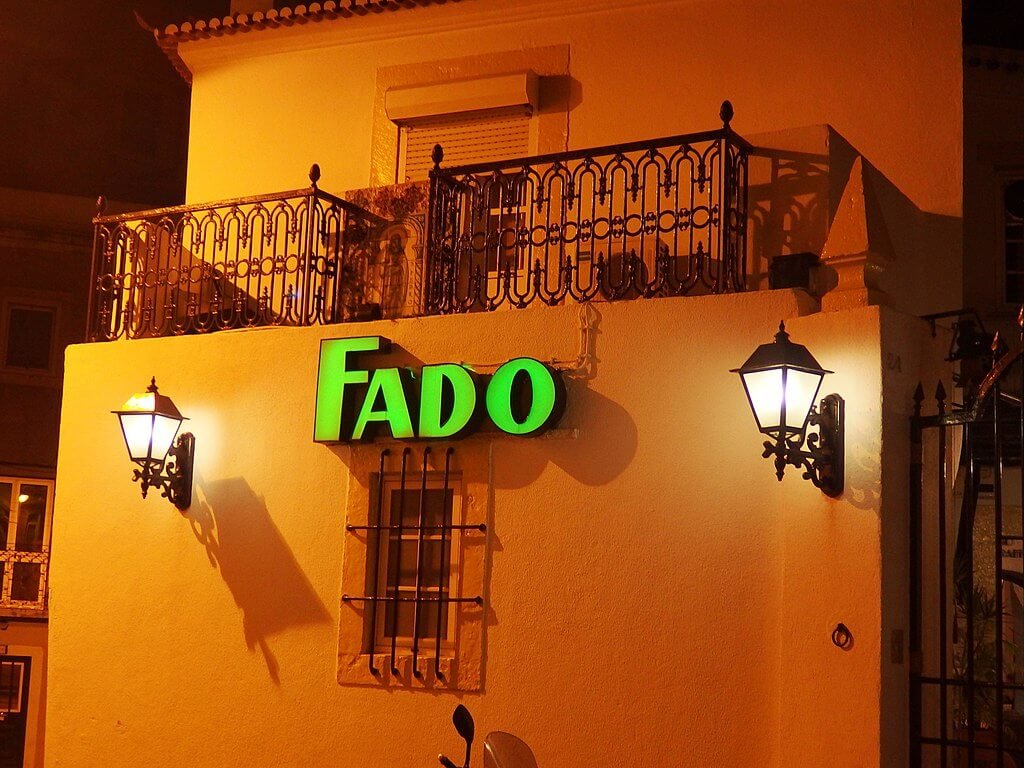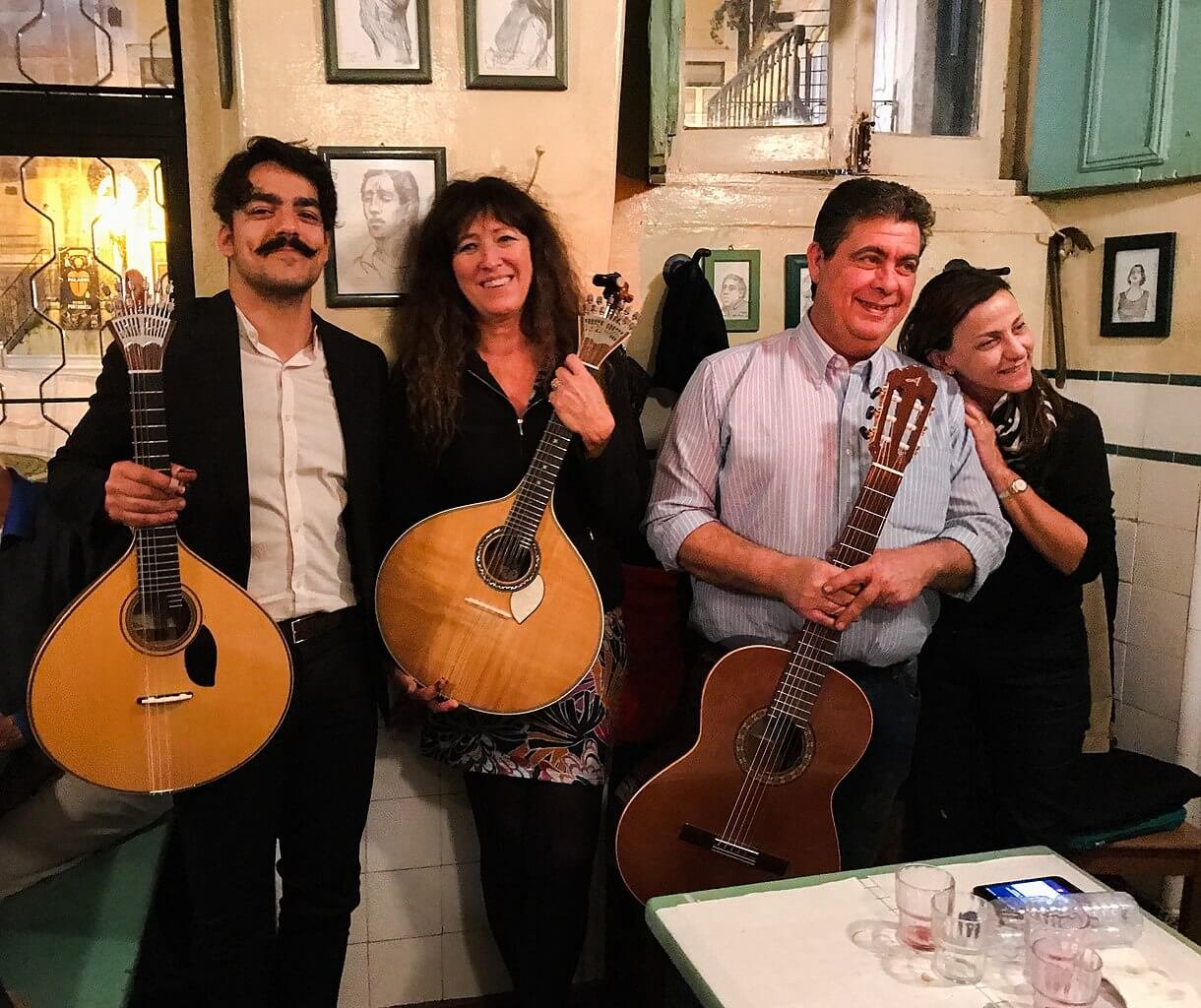In the winding, cobblestone streets of Alfama, Lisbon’s oldest and most captivating neighborhood, the city’s iconic fado music genre echoes through the night air. Fado, a UNESCO-recognized Intangible Cultural Heritage, is an integral part of Portugal’s cultural identity, and nowhere is this haunting, melancholic art form more alive than in the Portuguese capital.
As you wander through Alfama’s maze of alleyways, the soulful melodies of fado music beckon you towards the neighborhood’s beloved fado houses, or “casas de fado.” These intimate venues, often tucked away in centuries-old buildings, are where the magic of fado comes to life, captivating both locals and travelers alike.
What is Fado Music?
Fado music, often described as the “soul of Portugal,” is a profoundly emotional and expressive musical style that originated in Lisbon in the early 19th century. Its roots can be traced back to the melancholic songs of the city’s working-class neighborhoods, where the struggles and heartaches of everyday life were poured into poetic lyrics and haunting guitar melodies.

The word “fado” itself is derived from the Latin “fatum,” meaning “destiny” or “fate,” reflecting the genre’s intrinsic connection to the human experience and the universal themes of love, loss, and longing.
Fado’s signature sound is characterized by the soulful, mournful vocal stylings of the “fadista” (fado singer), accompanied by the distinctive Portuguese guitar and the rhythmic strumming of the classical guitar.
Exploring Lisbon’s Fado Hot Spots
For those seeking an authentic fado experience in Lisbon, Condé Nast Traveler and other reputable travel publications often recommend a visit to the city’s fado hot spots. Here are some of the top recommendations for immersing yourself in the heart of fado music:
1. Clube de Fado
Nestled in the historic Bairro Alto district, this renowned fado house has been a bastion of traditional fado since its establishment in the 1940s. With its intimate setting, superb acoustics, and outstanding fadistas, Clube de Fado offers an unforgettable evening of music and atmosphere.
2. Fado Tejo
Located in the charming Alfama neighborhood, Fado Tejo boasts a stunning riverside location with panoramic views of the Tagus River. This fado restaurant offers an exceptional dining experience, combining authentic Portuguese cuisine with live fado performances by some of the city’s most talented artists.
3. Mesa de Frades:
This cozy, family-run establishment in Alfama is a true hidden gem. With its rustic charm and warm ambiance, Mesa de Frades invites you to experience fado in an intimate setting, where the music feels like a personal connection between the fadista and the audience.
4. Adega Machado:
Established in 1937, Adega Machado is one of Lisbon’s oldest and most iconic fado houses. Located in the Bairro Alto district, this venue exudes a classic Portuguese ambiance, with its traditional décor and exceptional acoustics, making it a must-visit for fado enthusiasts.
5. Taverna do Embuçado:
Tucked away in the narrow streets of Alfama, Taverna do Embuçado offers a truly authentic fado experience. This cozy tavern has been a cherished local favorite for decades, with its warm atmosphere and talented resident fadistas delivering captivating performances night after night.
6. Sr. Vinho:
For a unique fusion of fado and fine dining, Sr. Vinho is a superb choice. This upscale restaurant in the Lapa neighborhood boasts an impressive wine cellar and an exquisite Portuguese-inspired menu, complemented by live fado performances that add an unforgettable ambiance to your culinary experience.
7. Fado ao Café:
If you’re seeking a more casual and relaxed fado experience, Fado ao Café in Bairro Alto is a great option. This cozy café offers a warm and welcoming atmosphere, where you can enjoy a cup of traditional Portuguese coffee or a glass of wine while being serenaded by talented fadistas.
Beyond the Traditional: Unusual and Enjoyable Fado Experiences
While the traditional fado houses offer an authentic and immersive experience, Lisbon also provides opportunities for more unusual and enjoyable ways to engage with this captivating music genre. Here are a few unique experiences to consider:
1. Fado Walking Tours:
Explore the historic neighborhoods of Lisbon while learning about the history and cultural significance of fado music. Knowledgeable local guides will take you on a journey through the winding streets, sharing stories and anecdotes about the genre’s origins and evolution.

2. Fado Cooking Classes:
Combine your love for Portuguese cuisine with an appreciation for fado music by participating in a fado-themed cooking class. Learn to prepare traditional dishes while listening to live fado performances, creating a multisensory experience that celebrates both the culinary and musical heritage of Lisbon.
3. Fado Cruises:
Step aboard a traditional sailing vessel and embark on a unique fado experience as you cruise along the Tagus River. Enjoy live fado performances while taking in the stunning views of Lisbon’s historic landmarks and waterfront, creating a truly memorable evening of music and wanderlust.
Travel Tips for the Ultimate Fado Experience
To ensure you make the most of your fado journey in Lisbon, here are some valuable travel tips to keep in mind:
1. Book in Advance: Popular fado houses tend to fill up quickly, especially during peak tourist seasons. To secure your spot, it’s recommended to book your tickets or make reservations well in advance.
2. Dress Respectfully: Fado performances are considered cultural events, and many venues have a dress code. Opt for smart casual attire to show respect for the artists and the tradition.
3. Arrive Early: Arrive at the venue well before the performance starts to secure the best seats and fully immerse yourself in the atmosphere.
4. Engage with the Music: Fado is an emotional and intimate experience. Embrace the melancholic melodies, listen to the poetic lyrics, and allow yourself to be swept away by the emotions expressed through this powerful music genre.
Lisbon’s fado music is a captivating artistic expression that embodies the soul and spirit of Portugal. Whether you seek out the traditional fado houses, explore the city’s unique fado experiences, or simply let the melodies guide you through the winding streets, this enchanting music genre is sure to leave an indelible mark on your travel memories.
FAQ
1. What is Fado Music?
Fado is a music genre indigenous to Portugal, marked by melancholic tunes and evocative lyrics mostly revolving around love, loss, and life’s hardships.
2. How does Fado Music reflect the culture of Lisbon?
Fado, emerging from the heart of Lisbon, greatly mirrors the city’s history, temperament, and cultural fabric. Its potent lyrics often narrate stories of the city and its people.
3. Where can I hear authentic Fado Music in Lisbon?
Authentic Fado performances can be savored at various traditional “Fado Houses” spread across Lisbon. Notable areas for these performances include Bairro Alto, Mouraria, and the Alfama district.
4. Are there any special events or festivals dedicated to Fado Music in Lisbon?
Yes, Lisbon hosts numerous events celebrating Fado throughout the year. The most noteworthy is the annual “Festas de Lisboa” held in June, featuring Fado performances in various neighbourhoods.
5. Can I learn Fado music while in Lisbon?
Absolutely, there are institutions and workshops in Lisbon which offer lessons in Fado music. ‘Escola de Fado’ is one such revered institution known for Fado training.
6. How to best appreciate a Fado performance if I am new to the genre?
Appreciating Fado comes from understanding its roots in Portuguese culture. It’s recommended to learn about its history, engage with its poignant lyrics, and respect the depth of emotion the performers project.
7. Can I bring children to a Fado performance?
Most traditional Fado venues in Lisbon welcome all age groups. However, due to the emotive, oftentimes melancholic, Fado performances, it may not cater to young children’s enjoyment.
8. Where Is Fado Music From?
Fado music originated from Portugal, predominantly Lisbon, in the early 1800s, evolving to become representative of Portuguese culture and musical identity ever since.




